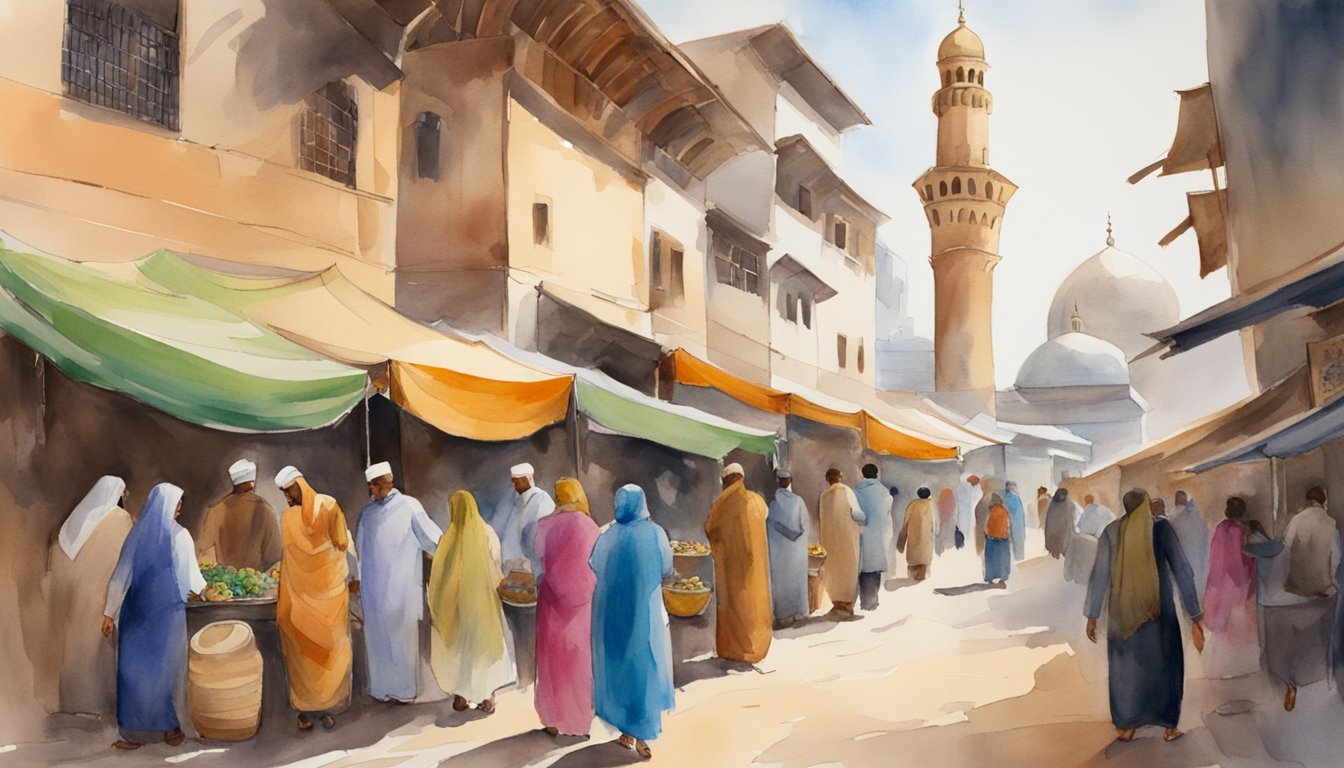Geographical Position of Morocco
Bordering Countries and Bodies of Water
Morocco is a country located in the northwest of Africa. Known as the Kingdom of Morocco, it is neighbored by Algeria to the east and the disputed territory of Western Sahara to the south. Its coast is bordered by the Atlantic Ocean on the west and the Mediterranean Sea on the north, making the country strategically positioned between Europe and Africa. Furthermore, it lies directly across the Strait of Gibraltar from Spain, which separates Morocco from Europe.
Key Geographic Landmarks
Morocco is well-known for its diverse topography comprising of Atlas Mountains and the Rif Mountains, which run in a southwest-northeast direction. The Atlas Mountains separate the Mediterranean and Atlantic coastlines from the Sahara Desert. The highest peak in Morocco is Jebel Toubkal, which stands at 4,167 meters (13,671 feet) and is part of the High Atlas mountain range.
Morocco’s capital city is Rabat, situated along the Atlantic coast. Its largest city, Casablanca, is also located on the Atlantic coast and is the economic hub of the country.
In terms of climate, Morocco experiences a Mediterranean climate along the coast, whereas, in the interior regions, it varies from mountainous to semiarid and arid conditions. The northern areas of the country receive more rainfall, making it suitable for agriculture.
Cultural and Political Aspects of Morocco

Government and Economy
Morocco is a constitutional monarchy in North Africa. The King of Morocco is the head of state, while the prime minister oversees the government operations. The country gained independence from French protectorate in 1956, and since then, it maintains stable relationships in Africa and the Arab world.
Morocco’s economy is diverse and relies on various sectors that include agriculture, industry, and tourism. Its geography is characterized by mountainous areas that support farming, including the Rif Mountains in the northwest and the High Atlas Mountains in the southeastern parts of the country. Morocco’s GDP is driven by the services sector, followed by industrial activities such as mining, construction, and energy production.
Tourism is a vital contributor to the country’s economy, with popular cities like Marrakech, Casablanca, Fes, Tangier, and Agadir attracting a significant number of visitors every year. Morocco also uses its own currency, the Moroccan Dirham.
Moroccan Culture and Society
Morocco is known for its rich history and culture shaped by inhabitants such as Berbers, who are indigenous to the region. Arabic and Amazigh (Berber) are the official languages, but French, English, and Spanish are spoken as well. In addition to the majority of Moroccan Muslims, the country is home to Christian and Jewish communities.
The Moroccan culture is a mix of Berber, Arab, Andalusian, Medina, and French influences. This is reflected in its architecture, cuisine, and music, which create a unique atmosphere in cities like Marrakesh, Fes, Essaouira, and Tetouan. The Medina areas, or old city quarters, are attractive to tourists due to their characteristic design and lively markets (souks).
In terms of climate, Morocco experiences a Mediterranean climate in the coastal areas and more extreme conditions in the mountains and the southeast. The country’s highest peak is Mount Toubkal in the High Atlas Mountains, attracting hikers and adventurers from around the world.
Moroccan cuisine is well-known for its diverse flavors drawing on the country’s mix of cultural influences. Some of the most famous Moroccan dishes include couscous, tajine, pastilla, and various sweets and pastries. The use of aromatic spices like saffron, cumin, and paprika adds a distinctive touch to the Moroccan food palate.

